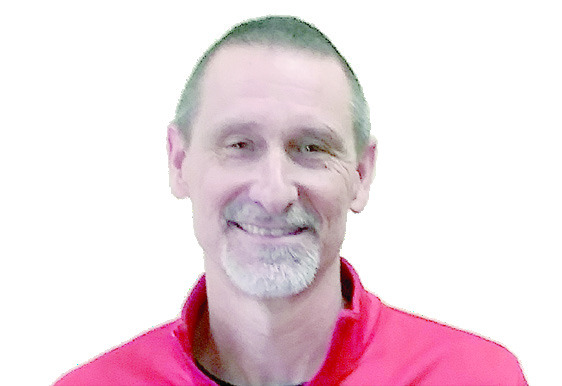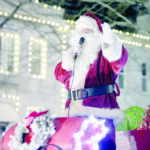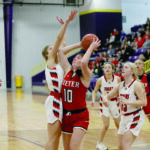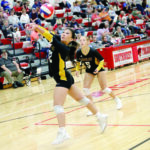Bob Mitchell: Navy Christmas of several years ago
This is a repeat of a column published in 2013 that depicts a special time in our lives. Reading it this time of the year has become a habit for me and I think if she could see, Anita Sue would also like the memory.
During a four-year hitch in Uncle Sam’s Navy, it was my luck to be one of those sailors who was home for two of those holidays. First there was Christmas l949, when the trip from Key West, Fl., provided some interesting events on the return to the duty station.
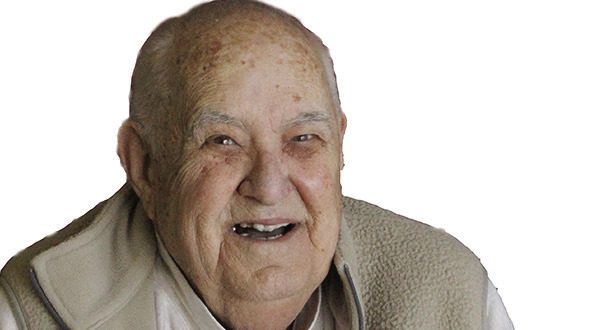
The night before my departure from Cassville the area was visited with one of the most severe ice storms of the decade. There was no way anyone could drive to Springfield for connections flying to Chicago. But fortunately the bus was to make one last run before shutting down.
An uneventful trip to Springfield got me there in plenty of time to make the last flight out to Chicago. So, a taxi ride took me to the College Inn where I spent a couple of years washing dishes. Wes Trapp, owner, would have it no other way than feeding me one of his “prate lunches” for which I was grateful.
Chicago
Arriving in Chicago on an old DC-3 it was quickly learned no flights out that night to Florida. So, took a couple of blocks walk to a bed-and-breakfast where members of the Flying Tiger Freight housed when on the ground. Making a quick breakfast the next morning, barely made the schedule getting out to Miami, which was very fortunate for me.
Eventually getting back to “Conchland,” I was practically met at the office door by the boss, an old destroyer skipper doubling as a public information officer. After chewing a while, he informed me on the next leave, if there was one, that I should choose “surface, sailor, surface.”
Shortly thereafter, I was on my way to Pearl Harbor and Pacific fleet indoctrination and eventually to Tokyo, Japan, and more learning about the ways of the Navy in that region.
Inchon landing
A shortage of PIO personnel rushed two of us aboard a transport headed to the Inchon landing of the First Marine Division. We were given a rush identification course to assist news personnel from the civilian world. That went well and the US was successful in this venture.
From this location we pulled several landings in Korea until the Allied forces got their pants whipped as the Chinese entered the conflict and Marine force were trapped at the Chosen Reservoir and were fighting their way for rescue at Hungnam, Korea on the east coast.
Here, about everything the U.S. had in that Far East the packed a gun was rushed to the scene to protect the evacuation area until the Marines could fight their way to the sea. This was one of the most spectacular operations witnessed in my career. The ringed boundary was targeted by big guns, including the USS Missouri, to eliminate any penetration by the enemy.
In the meantime, anything but heavy weapons, that were being loaded on available vessels, was being piled on the inner harbor for eventual demolition by Navy UDT.
The flagship USS Mt. McKinley departed the scene on Christmas Eve, steaming to a safe harbor in the south area, where she anchored for observance of Christmas. This included all the trimmings, that might have been on ships of the evacuation fleet, emptied of food for making room for more important cargo.
Christmas 1951
Sue and I had set up housekeeping in San Diego by the time the next holiday rolled around and decided to spend that year in California. Our little apartment on First Street, just a few blocks from the San Diego Zoo was a pleasant observance.
Homesick set in for the next year and we decided to board the Ford two-door and head home, which we did, much to the pleasure of family members. A passenger, thought to be a third driver turned out to be little help on the trip and we made it straight through in 32 hours.
That return to the final year of service proved somewhat like the first trip home from Florida, as a snowstorm was in the area the day before our departure. The lone slippery road recalled was between Cassville and Washburn.
The remainder of the trip was uneventful.
Navy rules
So far as was ever noticed, the Navy took care to make it possible for the Christmas holiday to be observed by their personnel according to a religious belief. Personnel who could be juggled to provide for an adequate force to be on hand to conduct business were given whatever leave they had amassed during the previous months.
A couple of quite sufficient Christmas meals were consumed during the holiday times, and it seemed there might have been some more supervision of the cooks in their preparation of that particular meal.
That practice was reserved when theater of operations permitted, hostile activities always made changes to what was observed.
Bob Mitchell is the former editor and publisher of the Cassville Democrat. He is a 2017 inductee to both the Missouri Press Association Hall of Fame and Missouri Southern State University’s Regional Media Hall of Fame.


